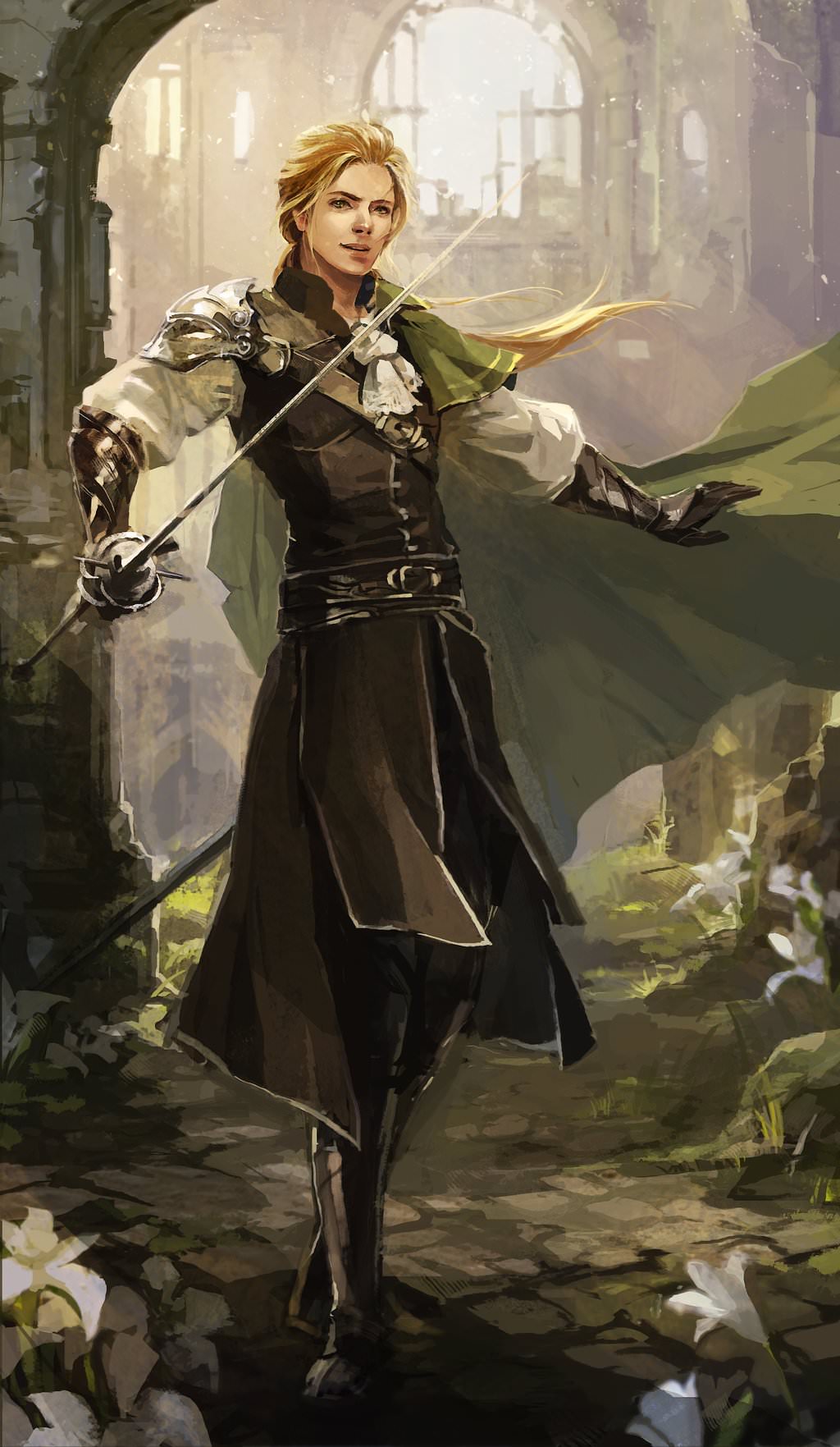
Table Of Contents
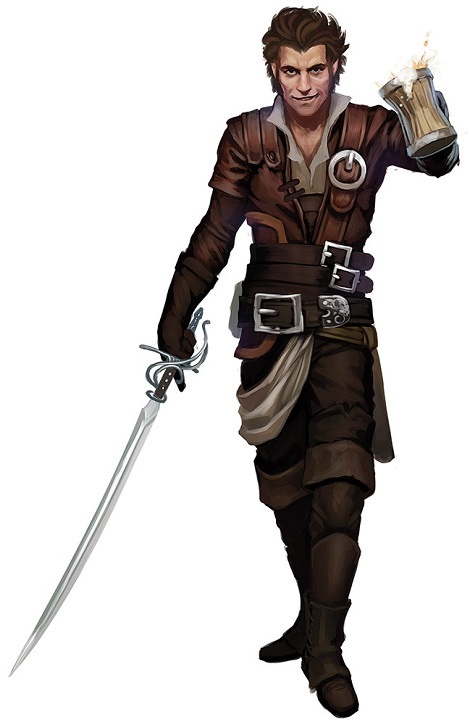
Paragon
Two half-elves fight side by side, constantly advancing towards a lone troll, stepping to the side of any blow the brute throws. One of the pair whistles sharply, and the second swings hard at the behemoth's knee. The troll's legs buckle and the first half-elf lunges, their sword piercing directly through the creature's skull.
A tiefling screams in delight, plunging their sword into the dragon's flank as their blade flares with a fierce light, briefly blinding their foe. Their every strike only strengthens their resolve, a fierce, indomitable majesty emanating from them as they hold fast against the dragon's attacks.
A human fights to their last, kicking and screaming as the fires of their own passion burn in their blood, brighter and brighter, before a pair of crimson-gold wings burst from their back, and they take to the sky in a brilliant cascade of light and fire.
Paragons, varied as they may be, are united in their irrepressible daring, flair for dramatics, and a willingness to go beyond any limits in pursuit of their goals. Their sheer determination leads them down paths few dare to follow, and no threat, no danger, will break their limitless conviction.
Striving for Perfection
Anyone can seek to do well in a certain field, but a paragon will accept nothing less than perfection with their chosen art. What earns this kind of devotion depends greatly on the paragon, but be it a skill, ideal, or quest, they will pursue it undaunted and eager for more.
This skill tends to come with a degree of boastfulness, however. While not exclusively the case, plenty of paragons feel a need to take their share of the limelight, showing off their talent for all the world to see, and all paragons find satisfaction in displaying the fruits of their labor. The products of potentially decades of practice tend to make for quite a good show.
Ancient Tales
To be spoken of in excited whispers through the din of a tavern, to be the wondrous hero of children's bedtime stories, to live on as a legend, as a tale of daring and glory, is the desire of many a paragon. Whether by word of mouth or in the records of scholars, each paragon is acutely aware of those who came before; legendary figures of the past, long dead heroes and villains who came and went, crafting their own sagas and fables as they did.
For this reason, many paragons are utterly unafraid of death, provided their demise would make an excellent story. After all, they live as long as their legacies do, and legends never die.
By Mark or Manner
Paragons universally seek recognition, and many choose to make themselves known by a quirk or eccentricity, a calling card to carry their name. This could take the form of a title, a unique manner of dress or speaking, a large tattoo, or an unconventional fighting style. Certain paragons may even go so far as to brand their defeated enemies with their personal mark, serving as a reminder to the victim, or a warning to their foes.
As a result, all paragons possess an uncanny ability to recognize another of their kind What differentiates a paragon from any other particularly driven person is, ultimately, a choice made by every paragon; the promise to themselves, to their art, to the world, that anything less than perfection is simply not an option.
Creating a Paragon
When creating your paragon, there are two important questions you should ask yourself. What does your paragon seek to champion, and why? How was your paragon introduced to their chosen art? Did you come upon it by chance, or were you raised to pursue it? If you were taught, what is your relationship with your teachers? Have you made any decisions you regret in pursuit of your goals?
What led you to becoming an adventurer? If your aims are more intellectual or artistic, you might seek to find lost lore or inspiration for your works. If you seek glory alone, perhaps you search for rumours of lost relics to discover or ancient beasts to slay, or maybe you wander the lands looking to right any wrongs you come across.
Be certain to decide why you have such passion for what drives you. The dauntless nature of the paragon is rare, and often forged in exceptional circumstances. The origins of your fiery spirit may have great effect on your future.
Quick Build
You can make a paragon quickly by following these suggestions. First, Dexterity should your highest ability score, followed by Charisma. Second, choose the Entertainer or Noble background.
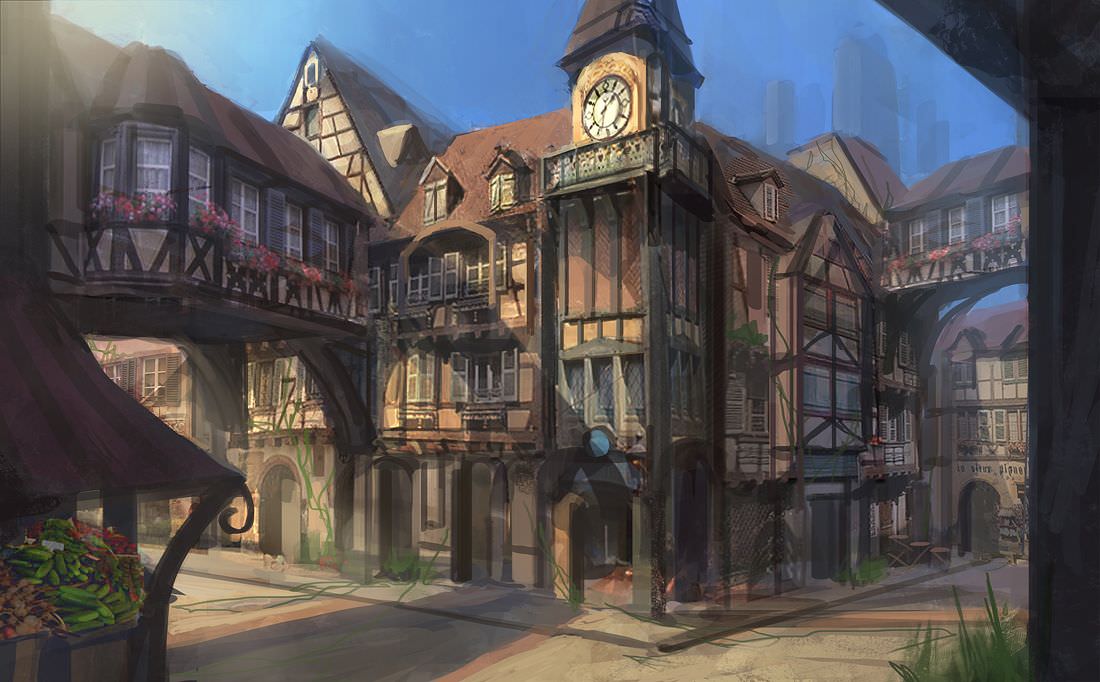


The Paragon
| Level | Proficiency Bonus | Features | Flairs Known | Nerve Points |
|---|---|---|---|---|
| 1st | +2 | Bravado, Quickstep | — | — |
| 2nd | +2 | Audacious Flair, Nerve | 2 | 2 |
| 3rd | +2 | Virtue | 2 | 2 |
| 4th | +2 | Ability Score Improvement | 2 | 3 |
| 5th | +3 | Extra Attack | 3 | 3 |
| 6th | +3 | Challenging Strike, Precise Strike | 3 | 4 |
| 7th | +3 | Virtue Feature | 4 | 4 |
| 8th | +3 | Ability Score Improvement | 4 | 5 |
| 9th | +4 | Frenzied Step | 5 | 5 |
| 10th | +4 | Evasion | 5 | 6 |
| 11th | +4 | Soul of the Saga | 6 | 6 |
| 12th | +4 | Ability Score Improvement | 6 | 7 |
| 13th | +5 | Virtue Feature | 7 | 7 |
| 14th | +5 | Dauntless Champion | 7 | 8 |
| 15th | +5 | Improved Frenzied Step | 8 | 8 |
| 16th | +5 | Ability Score Improvement | 8 | 9 |
| 17th | +6 | Cutting Prowess | 9 | 9 |
| 18th | +6 | Cheat Death | 9 | 10 |
| 19th | +6 | Ability Score Improvement | 10 | 10 |
| 20th | +6 | Virtue | 10 | 12 |
Class Features
As a paragon, you gain the following class features
Hit Points
- Hit Dice: 1d8 per paragon level
- Hit Points at 1st Level: 8 + your Constitution modifier
- Hit Points at Higher Levels: 1d8 (or 5) + your Constitution modifier per paragon level after 1st
Proficiencies
- Armor: Light armour, medium armour, bucklers
- Weapons: Simple weapons, martial weapons
- Tools: One set of artisan's tools, one gaming set, or one musical instrument of your choice
- Saving Throws: Dexterity, Charisma
- Skills: Choose three from Acrobatics, Athletics, History, Intimidation, Insight, Deception, Medicine, Perception, Performance, Persuasion, Sleight of Hand
Equipment
You start with the following equipment, in addition to the equipment granted by your background:
- (a) a martial weapon or (b) two scimitars
- (a) a hand crossbow and 20 bolts or (b) three daggers
- (a) leather armour or (b) scale mail armour
- (a) an explorer's pack or (b) a diplomat's pack
Alternatively, you could begin with starting wealth of 4d4 x 10 gp and purchase starting items of your choice.
Bravado
Starting at 1st level, you laugh in the face of any threat. You can add your Charisma modifier to your initiative rolls.
Quickstep
At 1st level, when you hit a creature with a melee weapon attack on your turn, you can immediately move up to 5 feet without provoking opportunity attacks. You can't use this feature if your speed is 0.
Nerve
Starting at 2nd level, your sheer nerve grants you an abundance of confidence in battle. This confidence is represented by a number of nerve points. Your paragon level determines the maximum number of points you have, as shown in the Nerve Points column of the Paragon table.
You can spend these points to fuel various nerve features. You start knowing three such features: Daring Assault, Striking Rebuttal, and Swift Retort. You learn more nerve features as you gain levels in this class.
You regain all expended nerve points when you complete a short or long rest. Additionally, you regain 1 nerve point when you score a critical hit with a weapon attack against a hostile creature, or when you reduce a hostile creature to 0 hit points.
Some of your nerve features require your target to make a saving throw to resist the feature’s effects. The saving throw DC is calculated as follows:
- Nerve save DC = 8 + your proficiency bonus + your Charisma modifier
Daring Assault
You can spend 1 nerve point to take the Dash action as a bonus action. When you do so, you can move along vertical surfaces without falling during the move until the end of your turn.
Striking Rebuttal
When a creature hits you with a attack, you can use your reaction and expend one nerve point to add your Charisma modifier to your AC until the start of your next turn, potentially causing the attack to miss you. You cannot use this feature if you are wielding a shield.
Optional Rule: Daring Act
The following method for regaining nerve points requires a measure of DM judgment, and is presented as an optional rule.
Daring Act: Each time a paragon performs a daring act, they can regain nerve. As a general guideline, a daring act should be risky and dramatic. It should take a good deal of guts, and its outcome should have a low probability of success. If it is successful, the paragon regains 1 nerve point
Before attempting a daring act, the player should ask the DM whether the act qualifies. The DM is the final arbiter of what’s considered a daring act, and can grant a regained nerve point for a daring act even if the player does not ask beforehand whether the act qualifies
Swift Retort
When a creature misses you with an attack, you can use your reaction and expend one nerve point to make a melee weapon attack against the creature.
Audacious Flair
Your honed talent and irrepressible spirit manifest as displays of skill, style, and finesse.
At 2nd level, you gain two flairs of your choice. Your flair options are detailed at the end of the class description. When you gain certain paragon levels, you gain additional flairs of your choice, as shown in the Flairs Known column of the Paragon table.
Additionally, when you gain a level in this class, you can choose one of the flairs you know and replace it with another flairs that you could learn at that level.
Virtue
At 3rd level, you commit yourself to a virtue, to an ideal, belief, or goal you seek to completely and truly embody. Choose the Virtue of Ascension, Virtue of Inspiration, or Virtue of Passion. Your choice grants you features at 3rd level, and then again 7th, 13th, and 20th level.
Ability Score Improvement
When you reach 4th level, and again at 8th, 12th, 16th, and 19th level, you can increase one ability score of your choice by 2, or you can increase two ability scores of your choice by 1. As normal, you can’t increase an ability score above 20 using this feature.
Extra Attack
Beginning at 5th level, you can attack twice, instead of once, whenever you take the Attack action on your turn.
Bladework
Beginning at 6th level, your mastery with the blade has granted you access to two new uses of your nerve points:
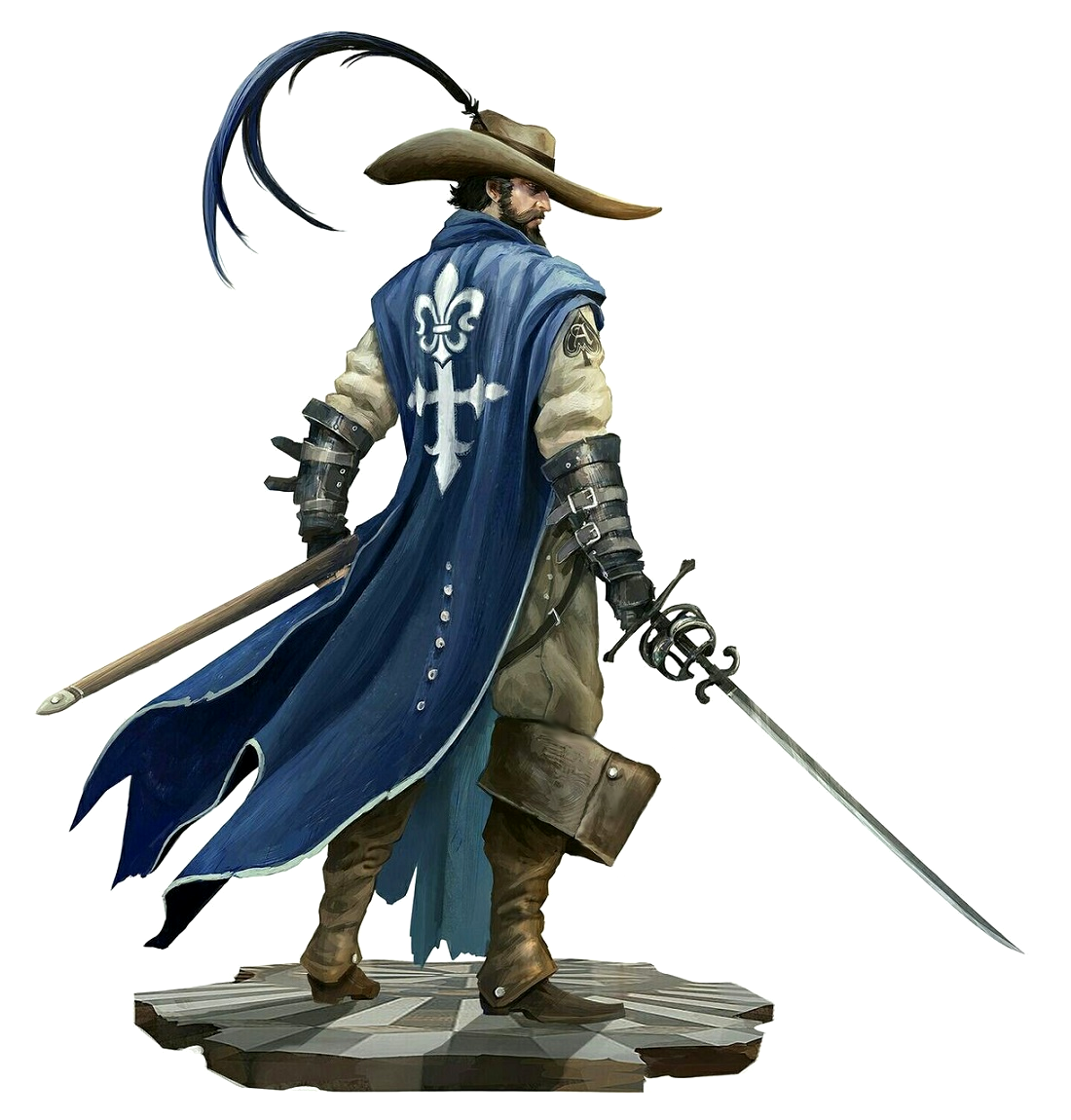
Challenging Strike. When you hit a creature with a weapon attack, you can expend 1 nerve point to taunt the creature. Until the end of your next turn, any attack rolls that the target creature makes against a target that is not you are made with disadvantage.
Precise Strike. When you make a weapon attack, you can spend 1 nerve point to gain advantage on the attack roll.
Frenzied Step
At 9th level, your movement speed increases by 10 feet. Furthermore, when you use your Quickstep feature, you can move an additional 5 feet, up to a maximum of 10 feet.
Finally, any attacks of opportunity made against you have disadvantage.
At 15th level, your movement speed increases by an additional 10 feet, and when you use your Quickstep feature, you can move an additional 5 feet, up to a maximum of 15 feet.
Evasion
At 10th level, you have a habit of getting away by the skin of your teeth, letting you dodge out of the way of certain area effects, such as a blue dragon's lightning breath or a fireball spell. When you are subjected to an effect that allows you to make a Dexterity saving throw to take only half damage, you instead take no damage if you succeed on the saving throw, and only half damage if you fail.
Soul of the Saga
At 11th level, you take on qualities of ancient legends. Once per turn, when you hit a creature with a weapon attack, the creature takes extra damage equal to your Charisma modifier (minimum of 1).
Dauntless Champion
Beginning at 14th level, your resolve is legendary amongst men. You can no longer be charmed or frightened.
Furthermore, at the start of each of your turns, you gain temporary hit points equal to half your paragon level if you have at least 1 hit point.
Cutting Prowess
Starting at 17th level, you strike with immeasurable ferocity and zeal. Your weapon attacks score a critical hit on a roll of 19-20.
Cheat Death
At 18th level, you can escape the cold grasp of death as if it were but mere mortal hands. When you are reduced to 0 hit points, you can expend 2 nerve points (no action required) to have 1 hit point instead, even if the attack would otherwise kill you.
Virtue
A paragon's virtue is their very reason for existing. Without it, they would be less than nothing. In pursuit of it, they would do anything. It is the core foundation of their very personhood, and upon it will rest their life's work.
For some paragons, the choice of virtue is easy, having known who they were meant to be for as long as they can remember. For others, the decision is less clear cut. Your paragon may not consider the core principle of these virtues their personal calling - not all those of the Virtue of Passion, for example, are mindless in pursuit of raw emotion, perhaps instead simply following their passion for their own more personal art above all else.
Ultimately, a paragon's commitment to their virtue is and always will be a great declaration to the world, and an eternal promise to themselves.
Virtue of Ascension
You have witnessed the legendary power of the world's ancients firsthand and been inspired. The unparalled awe evoked by certain creatures can be enough to spark reverence in many, but not all worship these mighty creatures. These paragons do not typically study these creatures to imitate what they do, but rather to imitate what they are.
Ascendant Majesty
Beginning at 3rd level, whenever you spend a nerve point, you gain one Majesty die, a d4, which lasts until the end of your next turn.
You can roll the die and add the number rolled to one ability check, attack roll, or saving throw you make. You can wait until after you roll the d20 before deciding to use the Majesty die, but must decide before the DM says whether the roll succeeds or fails. Once the Majesty die is rolled, it is lost. You can have only one Majesty die at a time.
Your Majesty die increases to a d6 at 10th level.
The First Step
When you select this virtue at 3rd level, choose one of the following options: Celestial Glory, Draconic Presence, or Fiendish Luster.
Celestial Glory. You learn one cantrip of your choice from the cleric spell list. Your spellcasting ability for this spell is Charisma.
Additionally, you can speak, read, and write Celestial.
Draconic Presence. You gain darkvision out to a range of 60 feet. If you already have darkvision from another source, its range increases by 30 feet.
Additionally, you can speak, read, and write Draconic.
Fiendish Luster. You gain proficiency in the poisoner's kit, and in one of the following skills of your choice: Deception, Persuasion, or Intimidation.
Additionally, you can speak, read, and write Infernal and Abyssal.
Seeker's Boon
At 7th level, your devotion grants you additional abilities based on the option you chose at 3rd level.
Celestial Glory. Once per turn when you hit a creature with a weapon attack, you can have your weapon flare with radiant light. If you do so, the creature you hit has disadvantage on its next attack roll against you within the next minute.
Draconic Presence. Once per turn when you hit a creature with a weapon attack, you can instill an unsteadying fear. If you do so, you have advantage on your next attack roll against the creature.
Fiendish Luster. You manifest a deadly aspect on the battlefield. When you hit a creature with a weapon attack, you can choose to deal additional fire damage equal to your Charisma modifier. A creature can only be affected by this feature once until the start of your next turn.
Life Imitates Art
At 13th level, whenever you would fail a saving throw, you can choose to succeed instead. You cannot do so again until you finish a long rest.
Additionally, your form evolves. You cease being a humanoid, instead becoming a type associated with the option you chose at 3rd level - Celestial, Dragon, or Fiend, respectively. Your appearance changes to reflect this, perhaps growing horns or a tail, sprouting vestigial wings or a halo, or developing shimmering scales and claws.
Apotheosis
At 20th level, you can use your action to transform yourself into a creature associated with the option you chose at 3rd level - Celestial Glory and the Ascended Celestial, Draconic Presence and the Ascended Dragon, or Fiendish Luster and the Ascended Fiend.
While transformed in this way, your game statistics are replaced by those of the creature, but you retain better ability scores, senses, proficiencies, and equipment if you wish, in addition to gaining those of the creature.
You retain the benefit of any features from your class, race, or other source and can use them if the new form is physically capable of doing so.
This effect lasts for 1 hour. Once you use this feature, you can't use it again until you finish a long rest.
Ascended Celestial
Large celestial, shares your alignment
- Armor Class 18 (natural armour)
- Hit Points 120 (20d8 + 40)
- Speed 50 ft., fly 50 ft.
STR DEX CON INT WIS CHA 18 (+4) 18 (+4) 14 (+2) 16 (+3) 18 (+4) 20 (+5)
- Damage Resistances radiant
- Damage Immunities poison
- Senses truesight 120 ft.
- Languages All, telepathy 120 ft.
Angelic Weapons. The celestial's weapon attacks are magical. When the celestial hits with any weapon, the weapon deals an extra 1d8 radiant damage (included in the attack).
Actions
Healing Touch (3/day). The celestial touches another creature. The target magically regains 30 (6d8 + 3) hit points and is freed from any curse, disease, poison, blindness, or deafness.
Ascended Dragon
Huge dragon, shares your alignment
- Armor Class 18 (natural armour)
- Hit Points 150 (20d8 + 60)
- Speed 50 ft., fly 50 ft.
STR DEX CON INT WIS CHA 22 (+6) 10 (+0) 17 (+3) 14 (+2) 18 (+4) 20 (+5)
- Damage Resistances acid, cold, fire, lightning
- Damage Immunities poison
- Senses blindsight 60 ft., darkvision 120 ft.
- Languages Draconic
Actions
Rend. Melee weapon attack: +12 to hit, reach 5 ft., one target. Hit: 10 (1d8+6) slashing damage plus 4 (1d8) acid, cold, fire, lightning, or poison damage.
Breath Weapon (1/day). Melee weapon attack: The dragon exhales destruction in an 30-foot cone. Each creature in that line must make a DC 19 Dexterity saving throw, taking 35 (10d6) acid, cold, fire, lightning, or poison damage (your choice) on a failed save, or half as much damage on a successful one.
Ascended Fiend
Huge dragon, shares your alignment
- Armor Class 18 (natural armour)
- Hit Points 150 (20d8 + 60)
- Speed 50 ft., fly 50 ft.
STR DEX CON INT WIS CHA 18 (+4) 18 (+4) 13 (+1) 18 (+4) 16 (+3) 20 (+5)
- Damage Resistances cold, fire, lightning
- Damage Immunities poison
- Senses truesight 120 ft.
- Languages Abyssal, Infernal, telepathy 120 ft.
Infernal Tempest. The fiend can attack three times, instead of once, when it takes the attack action on its turn.
Quirks of the Ascending
Paragon of this virtue seek to bring themselves closer to the creatures of their devotion by whatever means they can find, surrounding themselves in the trappings of their ideal. Consider adding one or more of these traits when creating a paragon planning to take this virtue, or when a particularly significant event involving your virtue takes place.
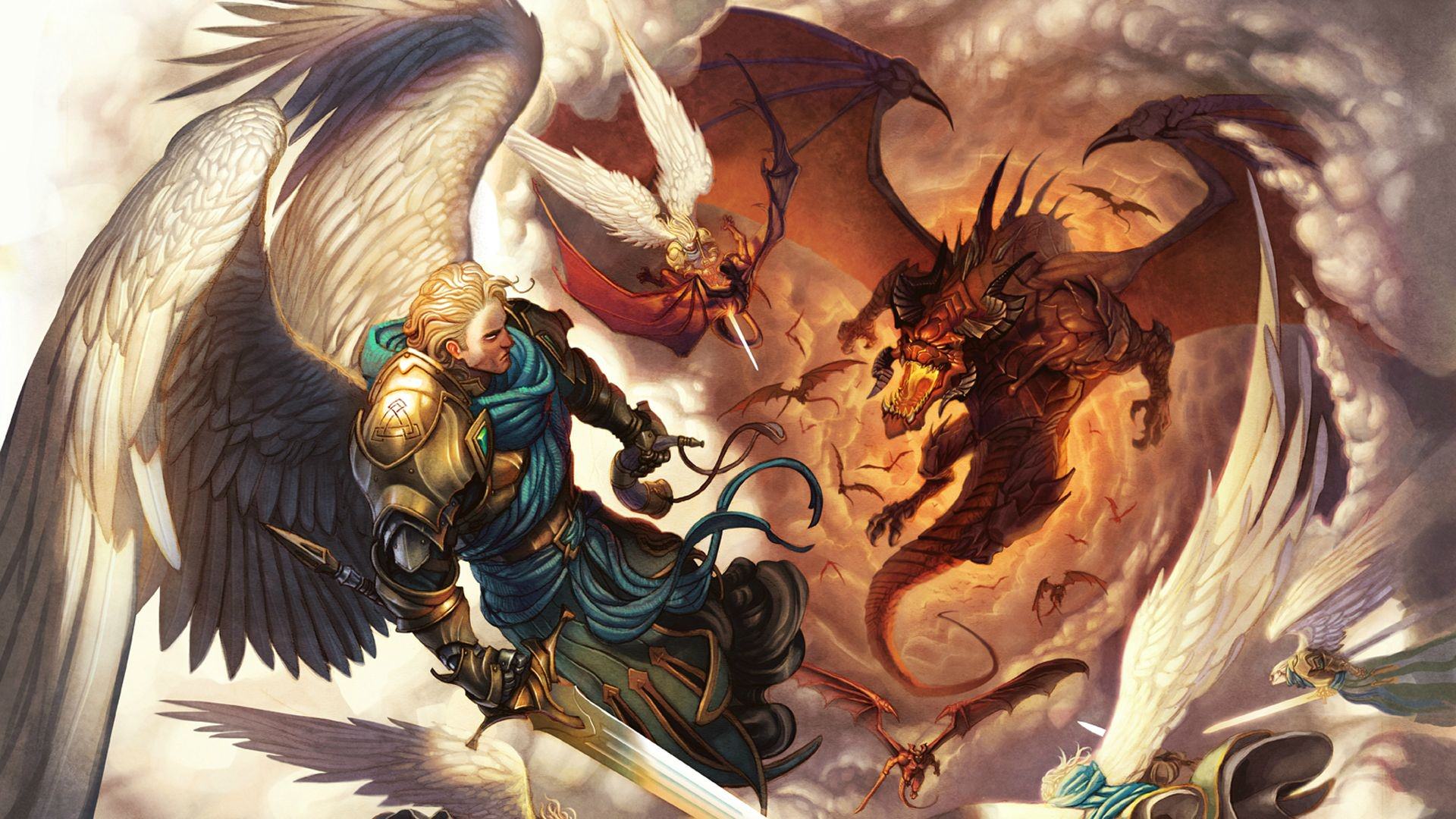

| d20 | Quirk |
|---|---|
| 1 | You were nearly killed by a rampaging fiend. You immediately decided it was the coolest thing ever. |
| 2 | You find the physical changes of ascension pleasant, yet slightly disturbing. |
| 3 | Your religion deifies certain powerful creatures. |
| 4 | You wholly believe in reincarnation. |
| 5 | You occasionally fall into speaking the language of your devotion, even accidentally. |
| 6 | Your body is decorated with intricate tattoos depicting legendary creatures. |
| 7 | You've always been uncomfortable in your own skin. |
| 8 | You hold both respect and fear towards the creatures of your devotion. |
| 9 | You're actually just that curious what dragon tastes like. |
| 10 | You pretend to be much older and wiser than you are. |
| 11 | You are a hunter, seeking the most legendary prey. |
| 12 | You feel a calling, distant whispers guiding your actions. |
| 13 | You believe, in a past life, you were a creature you admire. |
| 14 | You've never been content with your lot in life. |
| 15 | You believe the blood of certain creatures grants magical powers. |
| 16 | You were defeated by a creature your devotion in battle. Your seek to rise above them, mostly out of spite. |
| 17 | You measure an object's worth by its age. |
| 18 | You tell the story of the first time you saw a legendary creature at every opportunity. |
| 19 | You style your equipment after the creatures you admire. |
| 20 | You believe, one day, the world will be reduced to fire and rubble. You want to be there when that happens. |
Virtue of Avenging
Some paragons have tired from seeing their foes win out over themselves and others, and wish only to see their enemies crushed. These paragons seek to avenge that which they, or others have lost by enacting a never-ending crusade against their enemies.
Avenging Aspect
Starting when you choose this virtue at 3rd level, you can strike with grievous vengeance against your foes. Choose one of the following avenging aspects. Your choice determines the features that you gain at 3rd, 7th, 13th and 20th level.
Annihilating Aspect. When a creature attacks or damages to you, you can mark it as your Avenging Target. The next time you deal damage to your Avenging Target within the next 10 minutes, you deal an additional 1d6 damage of your weapon's type, and the creature is no longer your target.
This damage increases as you gain paragon levels, increasing to 2d6 at 7th level, 3d6 at 13th level, and 4d6 at 18th level.
Protecting Aspect. When a hostile creature attacks or damages a creature within 30 feet of you, you can mark the attacker as your Avenging Target. The next time you make an attack roll against your Avenging Target within the next minute, you gain a +2 bonus to your attack roll, and the creature is no longer your target.
This bonus increases as you gain paragon levels, increasing to +3 at 7th level, +4 at 13th level. and +5 at 20th level.
Once you have marked a creatured as your Avenging Target, you cannot do so again until the start of your next turn. You can only have one avenging target at once, and selecting a new one replaces the previous target.
Bonus Proficiency
Also at 3rd level, you gain proficiency in the Intimidation skill.
Twitching Nerve
Upon reaching 7th level, your nerve actions are bolstered by your endlessly sought vengeance. You gain the following features based on your Avenging Aspect choice at 3rd level.
Annihilting Aspect. When you use your challenging strike feature, your attack deals additional damage equal to your Charisma modifier.
Protecting Aspect. You can use your striking rebuttal feature to augment the AC of a creature that you can see within range of your weapon.
Unstoppable Avenger
Starting when you reach 13th level, nothing can hold you down, physically or mentally. You have advantage on ability checks and saving throws against the following conditions: charmed, frightened, grappled, paralyzed, petrified or restrained.
Additionally, when you use your daring assault feature, you gain an additional 10 feet of movement.
Meet Your Maker
Upon reaching 20th level, you can briefly take on the being of an unbreakable avenger bound by fury. As an action, you can channel your innermost rage, granting yourself the following benefits:
- Any creature you choose that starts its turn within 30 feet of you becomes your Avenging Target.
- You can have as many Avenging Targets as you like at once.
- Opportunity attacks are made against you with disadvantage.
Additionally, you gain other benefits based on your chosen Avenging Aspect:
Annihilating Aspect. You gain temporary hit points equal to your paragon level at the start of each of your turns.
Protecting Aspect. All creatures that you choose within 30 feet of you gain a +1 bonus to your AC.
This effect lasts for 10 minutes. After using this feature, you must finish a long rest before you can use it again.
Quirks of the Avenger
Paragons of this virtue seek to strike out against their enemies with great ferocity. Their motives for this vengeance is of your own choosing, and can range from righteous to very selfish. Consider adding one or more of these traits when creating a paragon planning to take this virtue, or when a particularly significant event involving your virtue takes place.
| d20 | Quirk |
|---|---|
| 1 | You are often taken by bouts of incredible rage, during which you become cruel, snarky, or selfish. |
| 2 | You have no patience for people who don't give you what you want, even when they have perfectly good reasons for not giving it to you. |
| 3 | You are needlessly brutal in battle, even to foes who clearly fear you. |
| 4 | You carve small scars, or tally marks into your body whenever you kill someone you deem important. |
| 5 | You will never kill someone you believe is innocent. |
| 6 | You will kill anything that raises a sword against you, regardless of how much their hand might shake. |
| 7 | You see people as greater monsters than even the most callous of dragons. |
| 8 | You'd protect those who fight with you with your very life. |
| 9 | Your goal is all that matters in life, if you were to achieve it, you'd have no idea what to do with your life afterwards. |
| 10 | Someone who does you or your ally an injury will receive one of their own two-fold. |
| 11 | You are stubborn to a fault. |
| 12 | You respond to threats with a barrage of insults. |
| 13 | You have spent years honing your body movements to be as intimidating as possible. |
| 14 | You get overly bloodthirsty in battle, almost to the point of losing control. |
| 15 | You have an addiction, anyone who mentions it is liable for a swift strike to the temple. |
| 16 | You remain so calm and collected in battle that it makes people very uncomfortable at times. |
| 17 | You take extra care of your weapons, treating them with oils and frequent sharpening. |
| 18 | You have a hit list. It may be paper or memories, but it's there. It's scarily long. |
| 19 | Whenever you slay an enemy that is not a target of your vengeance, you relinquish a quick prayer. |
| 20 | Were one of your companions to do, you would hunt that which killed them endlessly until your slaughtered them in the name of your fallen comrade. |
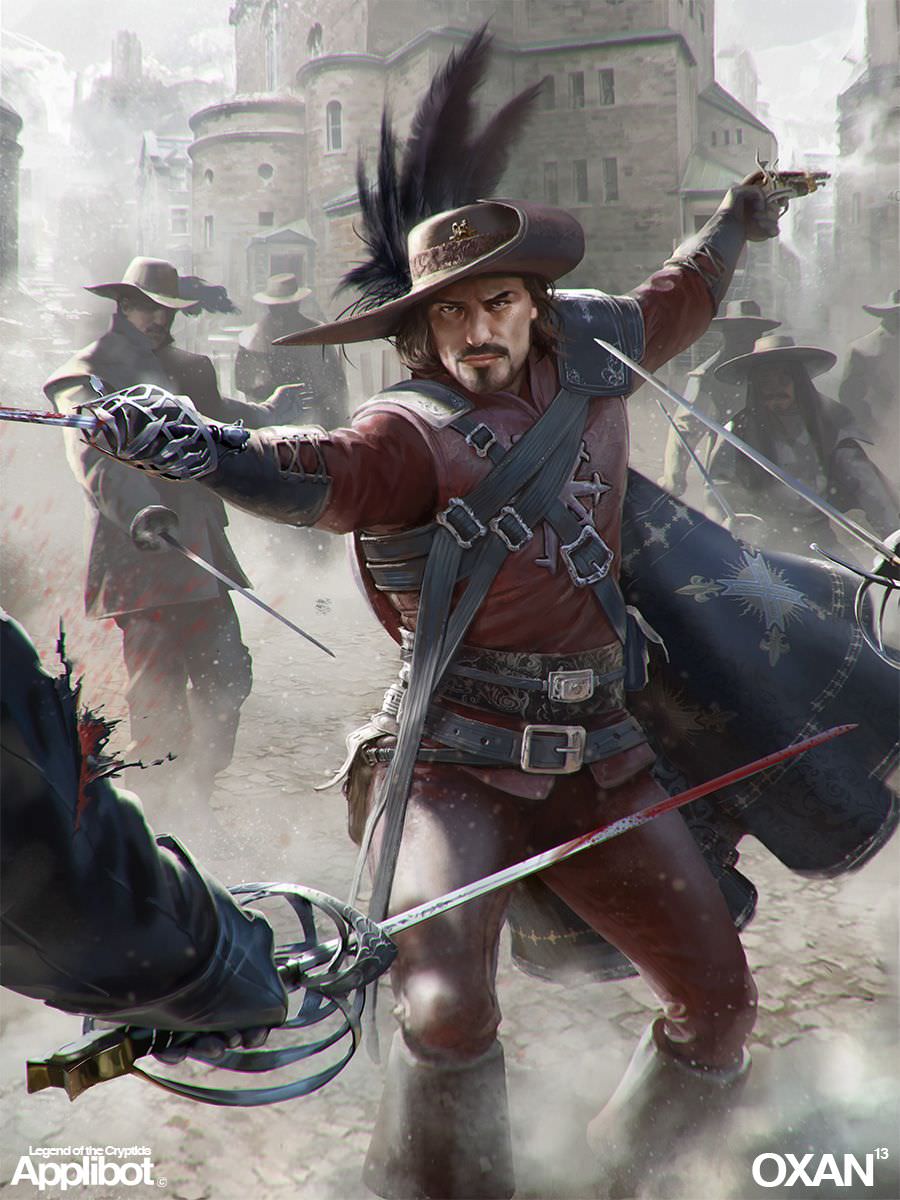

Virtue of Inspiration
To some paragons, doing great things is only as important as inspiring those same acts in others. Some of these paragons attract aspirants - squires, servants, or sidekicks, all of whom seek to find glory at the side of the paragon, whether the paragon fills the role of teacher, master, or friend.
Aspirant Companion
At 3rd level, you take a companion under your wing - an aspirant, one you seek to inspire through your actions.
How you acquire this companion is up to you and your DM, but upon arrival, they serve as your faithful follower. While your companion follows you, they gain all the benefits of your Inspired Fervour ability. You can have only one aspirant companion at a time.
When you acquire your aspirant companion, you select their game statistics, choosing from the options presented at the end of the Virtue of Inspiration description. Your companion's statistics might determine their general appearance, but they can look however you like, as long as their form is appropriate for their statistics.
You can acquire a new aspirant companion at any point after your previous companion has died. How you do so depends greatly on the circumstances at hand, and thus is left up to you and your DM. In general, reacquiring an aspirant companion should take a period of time no longer than 24 hours, and should come at no significant cost to the player.
Inspired Fervour
Your aspirant companion gains a variety of benefits while they are linked to you.
The companion obeys your commands as best they can. They roll for initiative like any other creature, but you determine their actions, decisions, attitudes, and so on (no action required by you). If you are incapacitated or absent, your companion acts on their own.
Your aspirant companion has abilities and game statistics determined in part by your level. Your companion uses your proficiency bonus rather than their own. In addition to the areas where they would normally use their proficiency bonus, an aspirant companion also adds their proficiency bonus to their AC.
For each level you gain after 3rd, your aspirant companion gains an additional hit die and increases their hit points accordingly. When your aspirant companion is reduced to 0 hit points, they make death saving throws as a player character would, and can be revived by any normal means. If your aspirant companion dies, they cease being your aspirant companion unless resurrected.
Your aspirant companion may use equipment like any other humanoid character, and shares your weapon proficiencies. They may only attune to a maximum of one magic item at a time, however. An aspirant companion wearing armour doesn't get to add anything to its AC.
Your aspirant companion gains proficiency in two skills of your choice. They are also proicient in all saving throws.
Your Companion and You
When playing this archetype, it's important to remember that your companion is a free-thinking creature. In general, they will agree with you, do as you say, and generally act as expected by the player. However, it is important that you and your DM are clear on how your companion might usually act in and out of combat and when seperated from you, and that the pair of you have discussed who will play their character in roleplay situations. Additionally, replacing a companion, as potentially morbid as it could become with a lasting bout of bad luck, is necessary for this archetype in the event of the companion's death. In such a case, talk to your DM about the means by which it might happen. If neither of you can think of a satisfactory method for doing so after a reasonable period of time, consider asking your DM if you can switch to a different archetype.
Whenever you gain the Ability Score Improvement class feature, your companion's abilities also improve. Your companion can increase one ability score of your choice by 2, or they can increase two ability scores of your choice by 1. As normal, your companion can't increase an ability score above 20 using this feature unless its description specifies otherwise. Your aspirant companion may not take feats.
The companion's level is equal to your paragon level for the purpose of calculating spells and effects like polymorph and true polymorph.
Your companion always shares your moral alignment, but may not be of your same lawful alignment. For example, you might be lawful good. You companion will always be good, but may well be neutral good, or even chaotic good. Consider your companion's personality traits when taking this Virtue, and how they may develop in future based on the actions you take and the circumstances you find yourselves in.
Aspirant Advancement
At 7th level, your companion gains proficiency in one skill of your choice. Alternatively, they may learn one language of your choice, or gain proficiency in one tool of your choice.
Furthermore, as long as your companion can see you, they gain advantage on all saving throws.
Rallying Cry
At 13th level, you and all friendly creatures within 30 feet of you gain advantage on initiative rolls.
Furthermore, you gain advantage on any ability checks made to inspire, encourage, or otherwise suggest acts of daring, bravery, or heroism in others.
Mantle of the Commander
At 20th level, you can lead a fight like no other. As a bonus action, you can take on the mantle of command, granting you the following benefits.
- When you activate this ability, and as a bonus action on each turn thereafter, you can command one creature within 60 feet of you to strike. That creature can immediately use its reaction to make one weapon attack.
- Once per turn when you hit a creature with a weapon attack, you can grant temporary hit points equal to half the damage dealt to one creature that can see or hear you.
- You and your companion have advantage on the first attack roll you make each turn.
This effect lasts for 10 minutes. After using this feature, you must finish a long rest before you can use it again.
Quirks of the Inspiring
All paragons have their eccentricities, and those of this virtue are no different. Whether these quirks have waxed or waned in the prescence of your companion is another matter entirely. Consider adding one or more of these traits when creating a paragon planning to take this virtue, or when a particularly significant event involving your virtue takes place.
| d20 | Quirk |
|---|---|
| 1 | You talk to yourself constantly. |
| 2 | You believe it is your destiny for you to die and for your companion to succeed you. |
| 3 | You keep a great secret from your companion. |
| 4 | Your companion is despised by any horses the two of you ride. |
| 5 | You see yourself as a knight-errant, your companion serving as your squire. |
| 6 | You see you and your companion as a crime-fighting duo. You even came up with nicknames. |
| 7 | You order your companion to write about everything you do, in case you ever need to visit to a biographer. |
| 8 | You regularly sing about you and your companion's adventures. Your companion is incredibly embarrassed by this. |
| 9 | You saved your companion's life long ago. |
| 10 | You believe that your current companion is destined for greatness, and that you must lead them there. |
| 11 | You believe you need someone to hold back your impulses, someone to tell when to stop. |
| 12 | You and your companion have a perfect good-cop bad-cop routine. |
| 13 | Anyone you share a drink with is family to you. |
| 14 | You often are a group's protector of sorts. |
| 15 | Your companion carries a huge sack filled with trophies from your adventures. |
| 16 | Every morning, you train your companion with gruelling exercise and combat practice. |
| 17 | Your companion wears a your hand-me-down loot. |
| 18 | After every battle, you and your companion spend twenty minutes bickering about a variety of topics. |
| 19 | You never, ever, get your companion's name right. |
| 20 | Your companion saw a particularly heroic deed of yours, and immediately asked to accompany you. |
Aspirant Companion Statistics
Your aspirant companion uses one of the following sets of statistics of your choice.
Agile Aspirant
Medium humanoid, moral alignment same as paragon
- Armor Class 12
- Hit Points 13 (2d8 + 4)
- Speed Speed
STR DEX CON INT WIS CHA 10 (+0) 15 (+2) 14 (+2) 12 (+1) 12 (+1) 10 (+0)
- Senses passive Perception 11
- Languages Common, one of your choice
Mighty Aspirant
Medium humanoid, moral alignment same as paragon
- Armor Class 10
- Hit Points 13 (2d8 + 4)
- Speed 30 feet
STR DEX CON INT WIS CHA 15 (+2) 10 (+0) 14 (+2) 10 (+0) 12 (+1) 12 (+1)
- Senses passive Perception 11
- Languages Common, one of your choice
Mystical Aspirant
Medium humanoid, moral alignment same as paragon
- Armor Class 10
- Hit Points 13 (2d8 + 4)
- Speed 30 feet
STR DEX CON INT WIS CHA 15 (+2) 10 (+0) 14 (+2) 10 (+0) 12 (+1) 12 (+1)
- Senses passive Perception 11
- Languages Common, one of your choice
Spellbolt. Ranged Spell Attack: +4 to hit, range 60 ft., one target. Hit: 6 (1d8 + 2) force damage.
More Than Just a Statblock
The Aspirant Companion, mechanically, is presented as race-agnostic. For any given reason, you might want an elf, halfling, kobold, or a member of any other race as a companion. To do so, simply add the most basic of any race's given traits to any of the sets of aspirant statistics presented here. In general, this should not alter the overall power of the companion. For example, an elven companion would have the Darkvision and Trance features, but none of the elf's other racial features, while a Halfling companion would be Small rather than Medium. The DM is well within their rights to disallow this, and may rule that your companion must use the aspirant's default statistics.
Virtue of Passion
Certain paragons believe in passion for passion's own sake, delving into their whims and fleeting passions with white hot intensity. These paragons evoke destructive displays of power by harnessing emotions - hate, love, desire, all serve as fuel for the fire as they burn away their very soul in pursuit of their goals.
Spellcasting
When you reach 3rd level, your will manifests in bursts of untamed magic. See chapter 10 of the PHB for the general rules of spellcasting, and the end of this document for the virtue of passion spell list.
Cantrips. You learn three cantrips of your choice from the sorcerer spell list. You learn an additional virtue of passion cantrip of your choice at 10th level.
Spell Slots. The virtue of passion Spellcasting table shows how many spell slots you have to cast your spells of 1st level and higher. To cast one of these spells, you must expend a slot of the spell's level or higher. You regain all expended spell slots when you finish a long rest.
For example, if you know the 1st-level spell charm person and have a 1st-level and a 2nd-level spell slot available, you can cast charm person using either slot.
Spells Known of 1st Level and Higher. You know three 1st-level sorcerer spells of your choice.
The Spells Known column of the virtue of passion Spellcasting table shows when you learn more sorcerer spells of 1st level or higher. Each of these spells must be of a level for which you have spell slots. For instance, when you reach 7th level in this class, you can learn one new spell of 1st or 2nd level.
Additionally, when you gain a level in this class, you can choose one of the sorcerer spells you know and replace it with another spell from the sorcerer spell list, which also must be of a level for which you have spell slots.
Spellcasting Ability. Charisma is your spellcasting ability for your virtue of passion spells, since your magic is fueled by your raw passion and willpower. You use your Charisma whenever a spell refers to your spellcasting ability. In addition, you use your Charisma modifier when setting the saving throw DC for a sorcerer spell you cast and when making an attack roll with one.
Virtue of Passion Spellcasting
| Level | Cantrips Known | Spells Known | 1st | 2nd | 3rd | 4th |
|---|---|---|---|---|---|---|
| 3rd | 3 | 3 | 2 | — | — | — |
| 4th | 3 | 4 | 3 | — | — | — |
| 5th | 3 | 4 | 3 | — | — | — |
| 6th | 3 | 4 | 3 | — | — | — |
| 7th | 3 | 5 | 4 | 2 | — | — |
| 8th | 3 | 6 | 4 | 2 | — | — |
| 9th | 3 | 6 | 4 | 2 | — | — |
| 10th | 4 | 7 | 4 | 3 | — | — |
| 11th | 4 | 8 | 4 | 3 | — | — |
| 12th | 4 | 8 | 4 | 3 | — | — |
| 13th | 4 | 9 | 4 | 3 | 2 | — |
| 14th | 4 | 10 | 4 | 3 | 2 | — |
| 15th | 4 | 10 | 4 | 3 | 2 | — |
| 16th | 4 | 11 | 4 | 3 | 2 | — |
| 17th | 4 | 11 | 4 | 3 | 3 | — |
| 18th | 4 | 11 | 4 | 3 | 3 | — |
| 19th | 4 | 12 | 4 | 3 | 3 | 1 |
| 20th | 4 | 13 | 4 | 3 | 3 | 1 |
- Spell save DC = 8 + your proficiency bonus + your Charisma modifier
- Spell attack modifier = your proficiency bonus + your Charisma modifier
Ardent Focus
At 3rd level, you learn to shape your magic with sheer passion alone. When you cast spells that require a material component, you can ignore that component unless it has a value, such as the specially marked sticks, bones, or similar tokens worth at least 25 gp for the augury spell, in which case the components are required.
Spirit Manifest
Also at 3rd level, you gain the ability to summon displays of magical power, reflections of your spirit made manifest by your will. As an action, you can create one of the following effects of your choice:
- Create a harmless sensory effect related to fire, lightning, light, or darkness, such as your footsteps leaving a charred trail, your hands sparking with electricity, your eyes flaring with a bright light, or shadows wreathing your body like smoke.
- Cause a creature you can see to briefly feel a particular emotion. A creature affected in such a way is not compelled to act as if the emotion was their own, and is aware the emotion is unnatural.
- Ignite a flammable object you touch with your hand, such as a torch, a piece of tinder, or the hem of drapes.
- Brighten or darken an area no larger than a 1-foot cube. This ability does not obscure an area, and cannot remove any obscurement caused by anything other than nonmagical darkness.
Spitfire
At 7th level, you dance across the battlefield, a tempest of heat and fury. Whenever you use your Quickstep feature, you can instead choose to teleport the distance you would move. If you do so, you can use Quickstep regardless of your movement speed.
On Burning Wings
Starting at 13th level, you can use a bonus action to manifest a pair of wings comprised of blazing light. While the wings are present, you have a flying speed equal to your current walking speed. The wings last until you're incapacitated, you die, or you dismiss them as a bonus action.
My Chains are Broken
At 20th level, you can briefly become a creature of raw passion. As an action, you channel your most powerful emotions, granting yourself the following benefits.
- You have resistance to fire, lightning, radiant, and necrotic damage.
- You are immune to being exhausted, grappled, paralyzed, stunned, or restrained.
- Your movement speed is doubled.
- Your melee weapon attacks inflict an additional die of damage.
This effect lasts for 10 minutes. After using this feature, you must finish a long rest before you can use it again.

Quirks of the Passionate
Perhaps the most outwardly strange amongst paragons, those of the virtue of passion embrace their eccentricities with open arms. These paragons occasionally develop entirely new strange habits over the course of a day, before eventually losing them just as quickly. Consider adding one or more of these traits when creating a paragon planning to take this virtue, or when a particularly significant event involving your virtue takes place.
| d20 | Quirk |
|---|---|
| 1 | You frequently have vivid lucid dreams. You believe them to be prophetic. |
| 2 | Your magic flares when you feel a strong emotion - a shower of sparks, a crack of lightning - whether you like it or not. |
| 3 | You often find yourself hypnotized by works of destruction. |
| 4 | You occasionally disappear for days at a time, returning with the fruits of your latest project. |
| 5 | You switch hobbies faster than anyone can keep track, picking up something new every week. |
| 6 | You have a habit of accidentally projecting your emotions to those nearby. This can be uncomfortable, depending on how you feel. |
| 7 | The fear of death is the most powerful feeling you've ever experienced. You can't get enough. |
| 8 | You find menial labour dull to the point of abject disgust. |
| 9 | You can't sleep unless you've heard or told at least one story that day. |
| 10 | You are terrified of being constrained - imprisoned, trapped, or otherwise held against your will. |
| 11 | You keep a supply of spare clothes. You tend to... burn through them. |
| 12 | Moving is your greatest joy. You never sit still. |
| 13 | You love to hear other people's stories. Their lives, their passions, fascinate you. |
| 14 | For a long time, you weren't aware of your own magic. Perhaps you still aren't. |
| 15 | You don't keep track of material possessions. You've never really been attached to an item for long enough to bother. |
| 16 | You take thrill-seeking to an extreme, performing mad stunts without fear. |
| 17 | When you accept a challenge, you give it everything you have, no matter the situation. |
| 18 | You've been known to be a little... explosive, while under duress. |
| 19 | Your appearance is permanently altered by your magic. Your eyes, skin, or hair might change colours, or perhaps something more dramatic entirely. |
| 20 | You don't spend days planning. You act. Let others deliberate over the minutiae. |
Flairs
If a flair has prerequisites, you must meet them to learn it. You can learn the flair at the same time that you meet its prerequisites. A level prerequisite in a flair refers to your paragon level.
Consider allowing certain flairs to affect your character from a roleplaying perspective. For instance, a character with the Caped Crusader flair might feel a compulsion to wear a cape at all times, while a character with the Derring-Do flair might attempt great stunts without any caution. Any character may choose to ignore this suggestion, or to change the suggested flavour of a given flair.
Art of the Trade
You gain proficiency in the Sleight of Hand and Stealth skills.
Additionally, you gain advantage on all checks made to negotiate the price of your services.
Avenging Blade
Prerequisite: Virtue of Avenging
When you reduce a creature to 0 hit points and kill it, you can regain 1 additional nerve point. Once you have used this feature, you cannot do so again until you complete a short rest.
Balancing Act
You're no stranger to dangerous environments. You gain a climbing speed and a swimming speed equal to half your normal movement speed.
Bare-Knuckle Brawler
Who needs weapons? Your time spent sparring with your unarmed strikes grants you the following benefits.
- You can use Dexterity instead of Strength for the attack and damage rolls of your unarmed strikes.
- You can roll a d6 in place of the normal damage of your unarmed strike.
- When you use the Attack action with an unarmed strike on your turn, you can make one unarmed strike as a bonus action.
Beyond the Veil
Prerequisite: Virtue of Passion, 9th Level
You can cast dream once without expending a spell slot. You cannot do so again until you finish a long rest.
Brilliant Tracker
Prerequisite: Virtue of Avenging
You gain proficiency in Wisdom (Survival) checks, and have advantage on Wisdom (Perception) checks to spot your Avenging Target if they are hidden from you.
Caped Crusader
You've always felt that armour only slowed you down. While you are wearing no armor and not wielding a shield, your AC equals 10 + your Dexterity modifier + your Charisma modifier.
Constant Vigilance
You can gain the benefits of a long rest after only 4 hours of sleep.
Additionally, during a short or long rest, you can choose to stand guard. While you are conscious and standing guard, you cannot be surprised, and you gain a +5 bonus to Wisdom (Perception) checks.
Deadly Dealer
You always keep a trick up your sleeve. Your practiced hand turns even playing cards into weapons. When you attack with a card, it counts as a simple ranged weapon with which you are proficient. It deals 1d4 piercing damage on a hit and has the finesse, light, and thrown properties (range 20/60).
Additionally, you gain proficiency in all gaming sets, and can add double your proficiency bonus to checks you make with them.
Derring-Do
Whenever you make an Acrobatics or Athletics check, you can spend 1 nerve point to add 1d6 to the check. You can choose to do so after you roll the die for the ability check, but before the DM tells you whether you succeed or fail. If the result of the die roll is a natural 6, you may roll another d6 and add it to the check. You may do this as long as you roll natural 6's, up to a maximum number of times equal to your Strength or Dexterity modifier (your choice).
Duellist's Flourish
When you take the Attack action and make a melee weapon attack with a light weapon that you're holding in one hand, you can use a bonus action to make a ranged weapon attack with a light weapon that you're holding in the other hand.
Elastic Casting
Prerequisite: Virtue of Inspiration, or Mystical Aspirant
You gain proficiency in the Arcana skill.
Additionally, whenever you finish a short rest, you can select one of the following damage types: acid, cold, fire, lightning, necrotic, poison, radiant, or thunder. Your companion's Spellbolt deals that damage type instead of force. This benefit lasts until you finish a short rest.
Eccentricity
You gain proficiency in any two tools of your choice, and you can add half your proficiency bonus, rounded down, to any ability check you make using a tool that doesn't already include your proficiency bonus.
Embroiled Senses
You gain proficiency in the Perception and Survival skills.
Additionally, you gain advantage on any Wisdom (Perception) or Wisdom (Survival) check made to find a wounded creature.
Esoteric Affinity
Prerequisite: Virtue of Ascension
Choose a type of affinity: celestials, dragons, or fiends. You have advantage on Intelligence checks to recall information about creatures of that affinity, and whenever you make a Charisma check when interacting with them, your Proficiency bonus is doubled if it applies to the check.
Facade
You have crafted a facade, an alternate persona. This facade can look however you like, but it is suggested they have a memorable and ostentatious name and appearance, or an otherwise eccentric feature (such as a mask or cape).
You can adopt or discard your facade as an action. While adopted, you have advantage on any checks made to hide your true identity, and other creatures have disadvantage on any checks made to identify you and your facade as the same person.
Additionally, you gain proficiency in the disguise kit.
Fox's Wit
Prerequisite: 5th Level
You have a talent for irritating others. When a creature that you can see rolls a 1 on an ability check, attack roll, or saving throw, you can use your reaction to force them to make a Wisdom saving throw against your nerve save DC, provided the creature can see or hear you. On a failed save, the target takes psychic damage equal to 1d10 + Charisma modifier.
Grand Performance
You can spend 10 minutes performing, enlivening your companions. When you do so, up to six creatures of your choice (which can include you) gain a Performance die, d6, which lasts until they finish a short rest.
A creature can roll the die and add the number rolled to one ability check, attack roll, or saving throw it makes. The creature can wait until after it rolls the d20 before deciding to use the Performance die, but must decide before the DM says whether the roll succeeds or fails. Once the Performance die is rolled, it is lost. A creature can't benefit from this flair again until it has finished a short or long rest.
Lead the Attack
Prerequisite: Virtue of Inspiration
When you take the Attack action on your turn, you can forgo one of your attacks to direct your aspirant companion to strike. When you do so, your companion can immediately use its reaction to make one attack. You can use this feature only once per turn.
Masterful Skill
Choose one of your skill or tool proficiencies. Your proficiency bonus is doubled for any ability check you make that uses that proficiency.
You may select this flair multiple times, to a maximum of 3, selecting a different skill or tool proficiency each time you do.
Polyglot
Your wanderlust has taken you to many places. You learn two languages of your choice. Furthermore, you can infer or express simple ideas to any creature you meet, as long as that creature understands at least one language.
Remember the Name
Prerequisite: 5th Level
When you reduce a creature to 0 hit points, you may choose to spare their life and brand them. Your brand is a symbol people have come to associate with you, such as a mark etched into your foe's clothes or body, or a missing extremity such as a finger or ear.
If you do so, you have advantage on all Charisma (Intimidation) checks against the branded creature for the next hour they spend conscious, and the creature spreads fearsome rumours of you wherever they go for the next 7 days, intentionally or not.
Soaring Step
You can use your Dexterity score, rather than your Strength score, to determine your jump distance for both long jumps and high jumps, and you are always considered to have a running start when jumping. Furthermore, any falling damage you suffer is halved.
Starlit Wanderer
While you can see the night sky, you have advantage on Wisdom (Survival) checks to navigate, and you always know which way is north.
Additionally, you gain proficiency in Navigator's Tools, and can add double your proficiency bonus to checks you make with them.
To Cinders
Prerequisite: Virtue of Passion
Whenever you reduce a creature to 0 hit points and it would otherwise die, you can choose to reduce it and any of its nonmagical possessions of your choice to a small pile of ashes.
Ventriloquist
You can make your voice, or any sound you can produce vocally, seem to come from somewhere else. Whenever you speak, you can choose to have the sound seem to originate from any location within 30 feet of you that you can see.
If a creature uses its action to examine the sound, the creature can discern it to be a trick with a successful Intelligence (Investigation) check against your nerve save DC.
Whirling Cyclone
You spin through the battlefield like a whirlwind. When you engage in two-weapon fighting, you can add your ability modifier to the damage of the second attack if you would not do so already. Additionally, you can draw or stow up to two weapons whenever you roll initiative and as part of the Attack action on your turn.
Zealous Spirit
Prerequisite: 11th Level
Your spirit is unchained, your conviction unbeatable. You can expend a single hit die when you make an ability check and roll it, adding to the result.
Multiclassing
- Ability Score Minimum. Strength 13 or Dexterity 13, Charisma 13
- Proficiencies Gained. Light armour, medium armour, simple weapons, martial weapons, and one set of artisan's tools, gaming set, or musical instrument
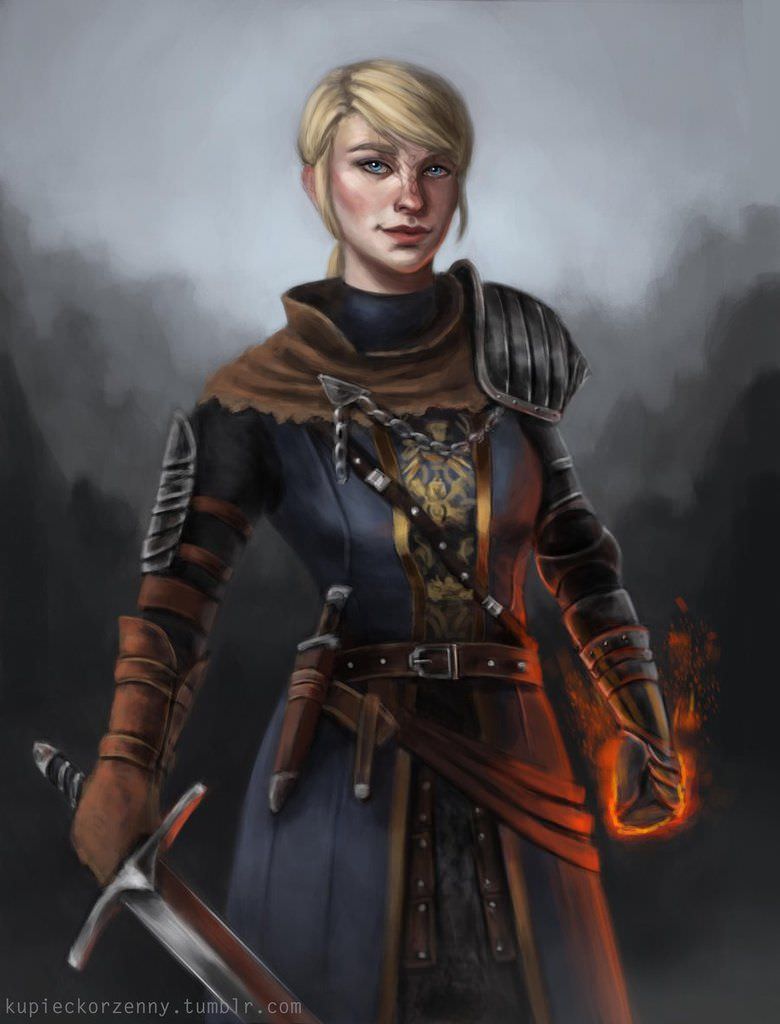
Jack Weighill's
Homebrew
Compendium
Hello players and GM Binder devs! You've found the back page of a class from my class compendium. Not all of this work is mine, in fact, most of it isn't! It is simply here for ease of access for the players, and isn't shared elsewhere.
An interesting swashbuckling class by /u/NottheSmoooze, the paragon didn't impress me much at first, but immediately caught my attention with its virtues. With each feeling interesting and unique, I immediately added it to my list, adding a virtu of my own!